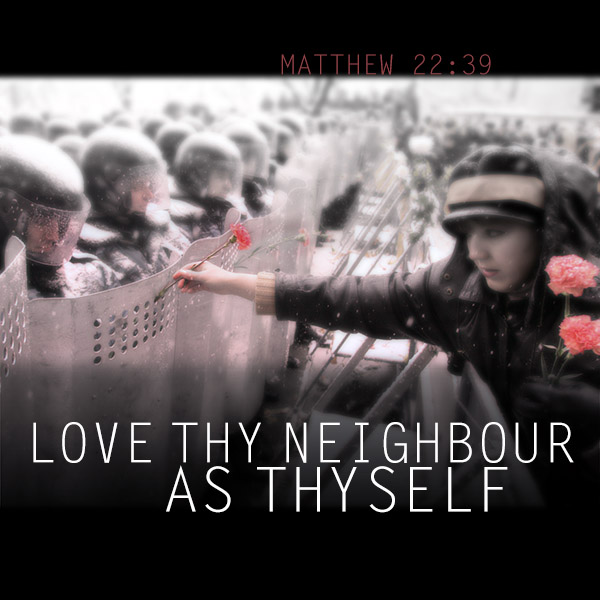While teaching, a lawyer tried to trap Jesus by asking him a trick question: What is the greatest commandment? He responded:
Jesus said unto him, Thou shalt love the Lord thy God with all thy heart, and with all thy soul, and with all thy mind. This is the first and great commandment. And the second is like unto it, Thou shalt love thy neighbour as thyself (Matthew 22:37-39).
These two commandments are very closely tied together. Mormons (a nickname sometimes used to describe members of The Church of Jesus Christ of Latter-day Saints) believe that every single person is a child of God. This makes all of us family—God’s family—and that means we need to treat each other with love and respect.
Mormon Service
 A study out of the University of Pennsylvania found that Mormons do more service than any other segment of American population, about three times as much. Even when church service was removed, they did as much as the average American, but they were still doing all that church service.
A study out of the University of Pennsylvania found that Mormons do more service than any other segment of American population, about three times as much. Even when church service was removed, they did as much as the average American, but they were still doing all that church service.
Although some church service involves teaching Sunday School or other specifically religious work, other aspects benefit the wider community. For instance, each women’s auxiliary operates a literacy program. I have taught free English as a Second Language classes at church and many of my students were not Mormon. Mormons also operate genealogy centers that are free to the public and run by volunteers, and they participate in days of service to their communities.
Mormons also operate an extensive humanitarian aid program that provides services such as clean water and training in neonatal resuscitation. Often recipients of Mormon humanitarian aid do not even know that Mormons are behind it, since much of the work is done through other non-Mormon organizations.
Love Thy Neighbor to Show Love for God
To love our neighbor is to love God because Mormons believe that when you serve others, you are really serving God. In reverse then, if we don’t love our neighbor, we don’t love God (See 1 John 4:20–21).
Mormons learn that to “love thy neighbor as thyself” means to think about what you would want someone to do for you if you were in the same situation. Sometimes this calls for a big act of service, such as cleaning a house or preparing a meal. Sometimes it requires a small act of service that can have a large impact—a hug for someone who looks sad, a kind word to a frightened child, or a telephone call to someone who is alone. The size of the service isn’t what is important. What matters is that you are sending that person a message that God saw the need and sent someone along to meet it. It is usually through a person that God meets the needs He sees. He could meet them all Himself, but He knows it is better for us to help each other so both the giver and the receiver benefit.
Sometimes people will ask, “If there’s really a God, why does He allow children to go hungry?” By asking this, they are trying to push off the responsibility for the child’s hunger on someone else. God put into their hearts a sadness for hungry children in order to motivate them to go out and serve those children. If they sit back and wait for someone else to do it, they are ignoring their own responsibility. God did His part by giving them that concern. He also helps make it possible for us to help with what needs to be done—extra time or money, perhaps. But we have to actually get up and go to work. We gain powerful eternal benefits from doing so and in this life, we learn to be less selfish and more giving. When we sacrifice for others, we are following in Jesus’ footsteps.
Additional Resource:
